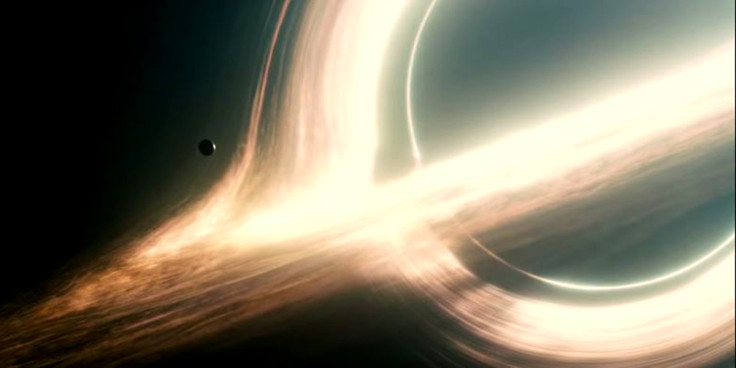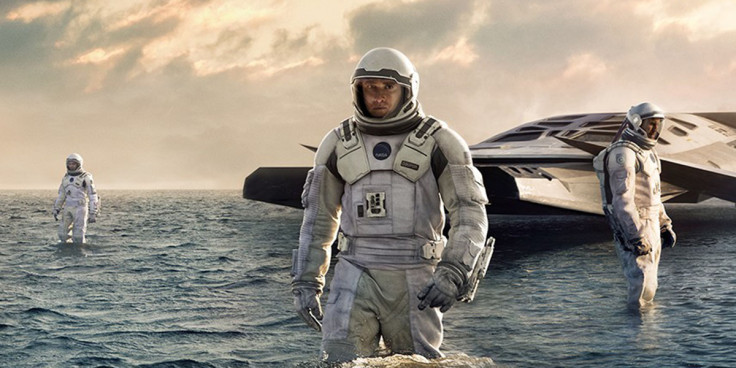Interstellar Blu-ray review: A sci-fi classic that benefits from time

Time is a diminishing resource in Christopher Nolan's science fiction epic Interstellar, so it's only appropriate that with time and multiple viewings the film's true qualities can be seen.
It's an obvious thing to say but films are only viewed for the first time once. It is a single moment in time that can never really be repeated. Each and every time a film is watched again, the viewer does so with that initial experience in mind.
They know what is going to happen, they know what will be said, and enjoyment regardless is really a testament to a film's true strength. It's certainly a problem with cinema and media in general that the first opinion is regarded as the most important, particularly when there are years and years' worth of repeat viewings and general life experiences that could entirely change a person's opinion.
Plenty of people saw Interstellar for the first time and loved it. My brother couldn't have loved it more, a starkly different opinion to what I had following my first viewing of the film. I truly didn't know what to make of it, and the difference was our expectations.
My brother had few, despite being a Nolan fan with a passion for The Prestige in particular, while I – another Nolan fan but also a writer tasked with reviewing the film – went in with anticipation and expectations high. Some of those expectations were met – the visual effects were spectacular, Matthew McConaughey was extraordinary and the film did indeed owe a heavy debt to Stanley Kubrick's 2001: A Space Odyssey.

The ending however left me more than a little befuddled, so I stumbled out of the screening like a man who'd just been informed that up was down, down was up and Nandos wasn't really chicken. It wasn't until I saw the film again (and on IMAX) with my brother that it all clicked – Interstellar is BRILLIANT.
A key part of criticism of any kind is to understand the intentions of those creating the film, album, game, painting you are reviewing. With Interstellar, Nolan wanted to tell a sweeping science fiction tale deeply rooted in theoretical science and a powerful, personal and relatable story about one man's love for his daughter.
It has problems in bringing the heartfelt moments together with its cold science (Anne Hathaway's corny dialogue about "love transcending time and space" was overwrought and should have been left as subtext) but for the most part the two stay separate. Cooper's [McConaughey] mission is based on science, but its purpose stems from two base human instincts – to survive and to love.
Interstellar's final act is a mind-bending exploration of the very farthest-fathomed theoretical physics which is a visual spectacle but a lot to swallow on the first time of asking. Watching the film a second (and now third) time has put me more at ease with the ending. It makes a lot more sense now.
One of the reasons for not fully comprehending it the first time was Hans Zimmer's often over-bearing but nonetheless spectacular soundtrack, which fills the film like the grand orchestral organ music which inspired it has filled churches and cathedrals for centuries.
Occasionally it drowns out important dialogue, a problem compounded by a script that is slightly too eager to pack in scientific detail rather than let the film progress more naturally. Interstellar is at its best when it bears its soul and the performances of McConnaughey and particularly young Mackenzie Foy as his daughter Murph shine through.
Interstellar has problems, but it is a sweeping epic of grand ambition, another Nolan wonder and a film that will - with time – be regarded as a true classic of the genre and cinema in general.

Extras: Given the film is so deeply scientific, naturally its behind the scenes footage is incredibly interesting. Thankfully there is a lot of it as well, focusing on everything from the Earthbound drought that threatens humanity to the enormous black hole that plays a pivotal role in our survival. The made-for-television documentary is split into chapters. The film's theatrical trailers are also included, but that's it.
© Copyright IBTimes 2024. All rights reserved.






